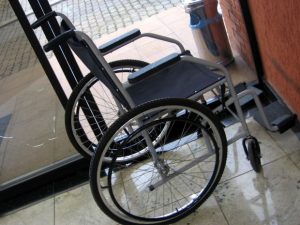In a recent case from the United States Court of Appeals for the Seventh Circuit, claimant applied for Social Security Disability Insurance (SSDI) benefits, and his application was denied by the U.S. Social Security Administration (SSA).
 Claimant first applied for disability benefits in 2008. In 2008, he was 35-years-old. His application was denied. This is not shocking, since SSA will typically reject the vast majority of all applications initially. This is done with little regard to whether the claimant is actually able to work. Congress is actually investigating whether this is intentional due to a series of complaints by whistleblowers. The reason claimant filed for Social Security disability insurance benefits was because he was suffering from congestive heart failure, chronic obstructive pulmonary disease (COPD), very bad asthma, and cardiomyopathy. This is a disease that will negatively affect the efficiency of the human heart, in addition to the harm done by his congestive heart failure. In addition to these debilitating conditions, he also suffered from obesity, high blood pressure, and another breathing disorder.
Claimant first applied for disability benefits in 2008. In 2008, he was 35-years-old. His application was denied. This is not shocking, since SSA will typically reject the vast majority of all applications initially. This is done with little regard to whether the claimant is actually able to work. Congress is actually investigating whether this is intentional due to a series of complaints by whistleblowers. The reason claimant filed for Social Security disability insurance benefits was because he was suffering from congestive heart failure, chronic obstructive pulmonary disease (COPD), very bad asthma, and cardiomyopathy. This is a disease that will negatively affect the efficiency of the human heart, in addition to the harm done by his congestive heart failure. In addition to these debilitating conditions, he also suffered from obesity, high blood pressure, and another breathing disorder.
As our Boston disability attorneys can explain, the administrative law judge (ALJ) will typically look at what is known as the patient’s ejection fraction (EF) in cases where a heart disease is the basis for a disability claim. The ejection fraction is a numerical value that represents how efficient the ventricles of the heart are at pumping blood throughout the body. In a fully functioning heart, the left ventricle ejection fraction (LVEF) will be between 50 and 75 percent. The right ventricle ejection fraction (RVEF) can be lower than this range, because it is only responsible for pumping blood to the lungs, as opposed to the left ventricle, which serves the rest of the body.
In this case, the patient’s doctor and expert witnesses said the claimant had a LVEF of 35. This is well below the normal level, and it puts a patient at serious risk for heart failure and makes it very difficult to function normally. The cardiologist found that claimant could not stand for more than an hour in an entire eight-hour workday and could not sit for more than two hours during this time. Essentially, the claimant would have to spend most of his day in bed, so as not to collapse from too much stress on his heart.
At the hearing before the ALJ, vocational expert (VE) testified that that, based on these conditions, a person would be unemployable. This is very significant, since the VE works for SSA and will find that a claimant can work in the vast majority of cases. However, in this case, the VE answered the ALJ’s hypotheticals in the negative.
Despite the obvious fact that claimant was completely disabled, as attested to by doctors and the VE, the ALJ found that claimant was not disabled. On appeal, the U.S. Court of Appeals for the Seventh Circuit stated that the ALJ’s ruling was “absurd” and reversed and remanded the case for proceedings consistent with its opinion.
If you or a loved one is seeking Social Security Disability Insurance in Boston, call for a free and confidential appointment at (617) 777-7777.
Additional Resources:
Childress v. Colvin, January 4, 2017, United States Court of Appeals for the Seventh Circuit
More Bog Entries:
Social Security Disability Judges Allegedly Used Racial and Sexual Terms on Claimants’ Applications, July 22, 2016, Boston SSDI Lawyer Blog
 Massachusetts Social Security Disability Lawyers Blog
Massachusetts Social Security Disability Lawyers Blog

